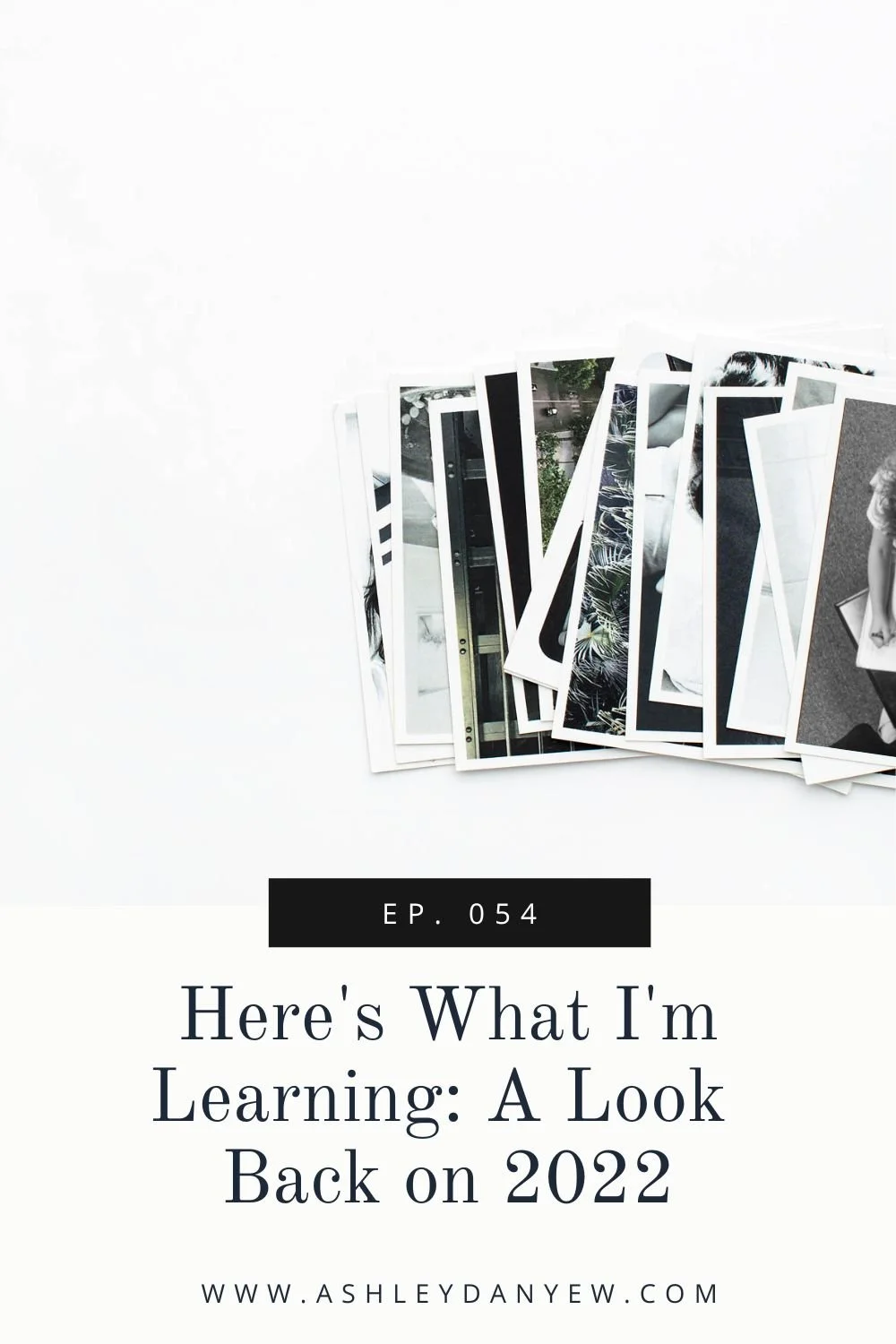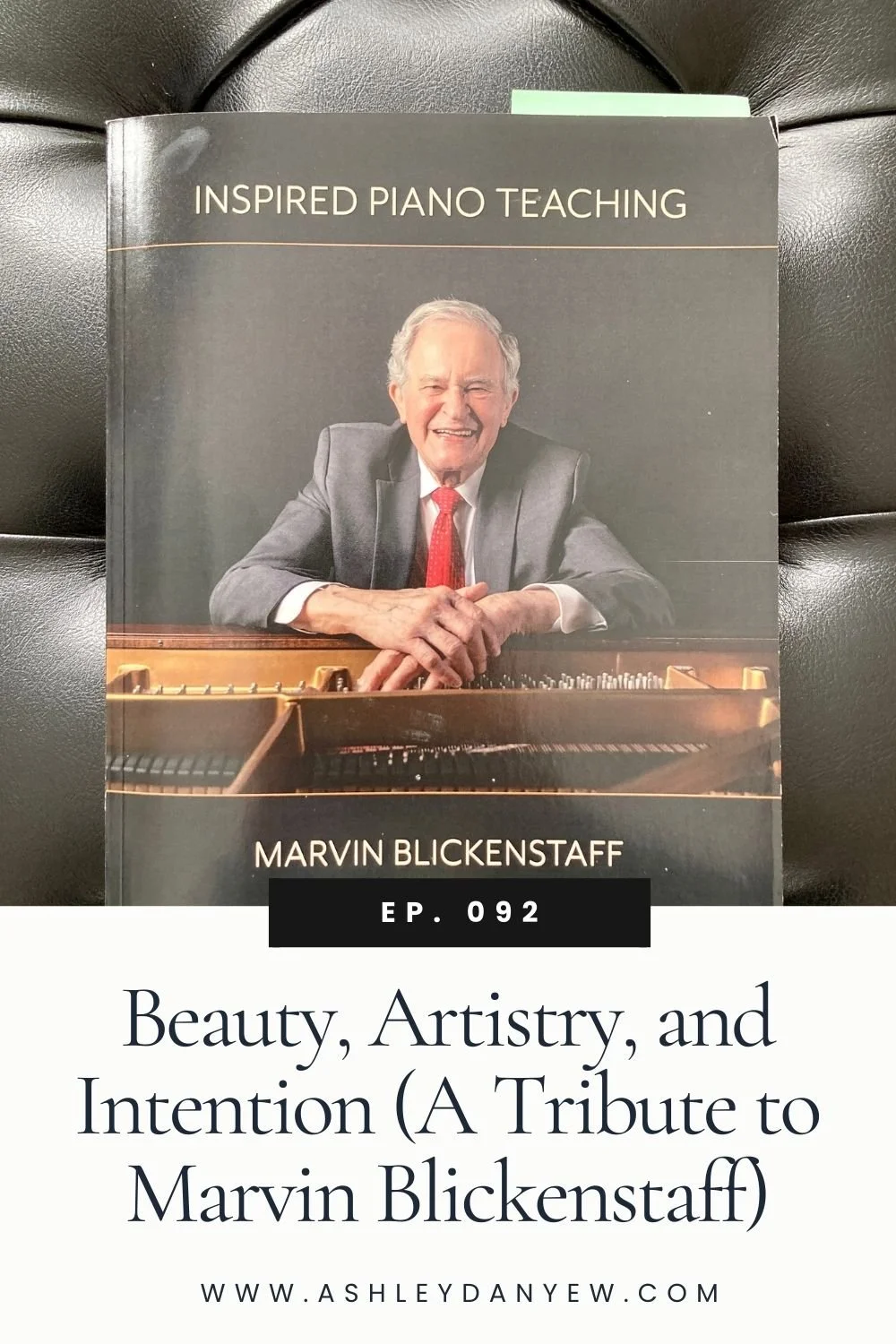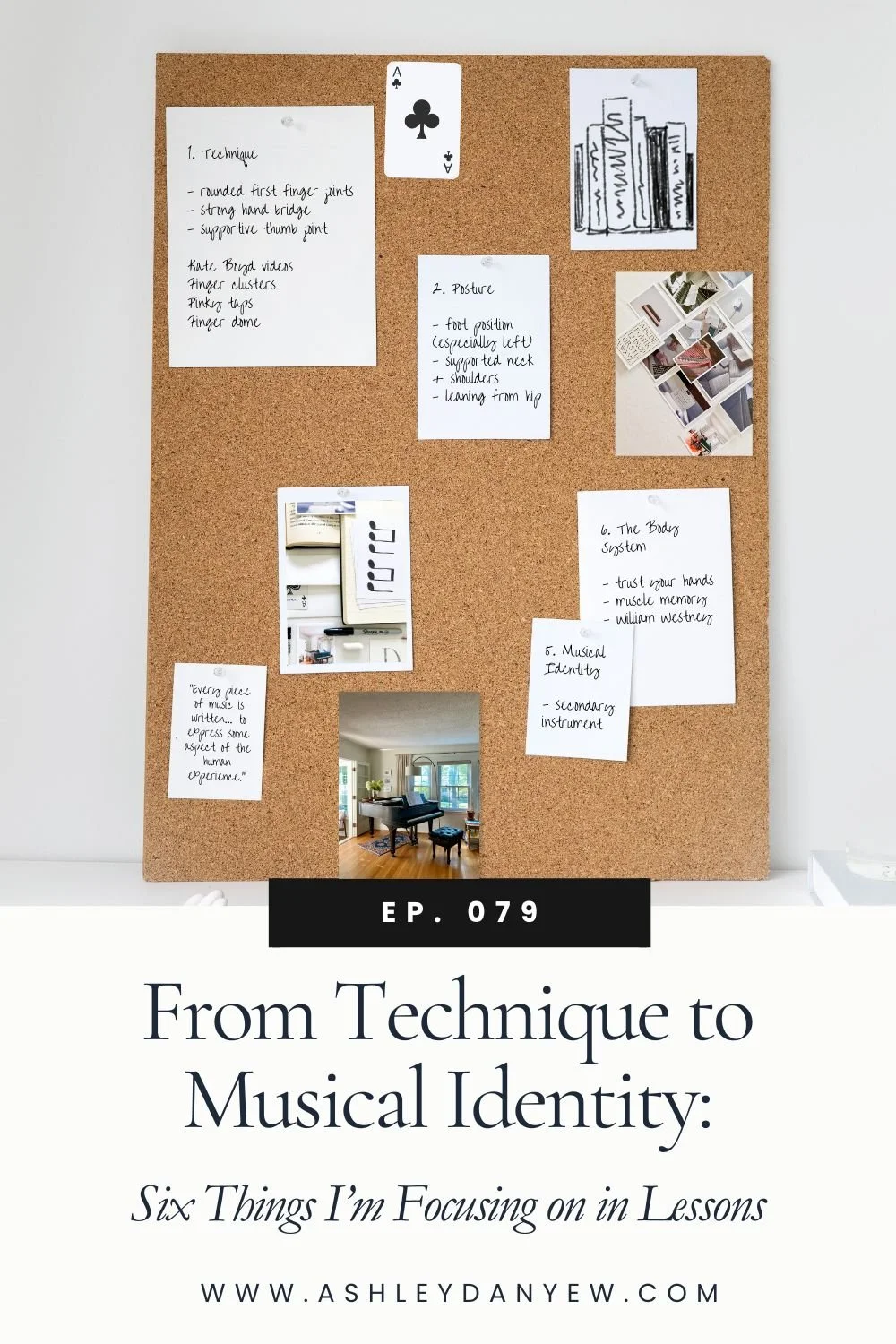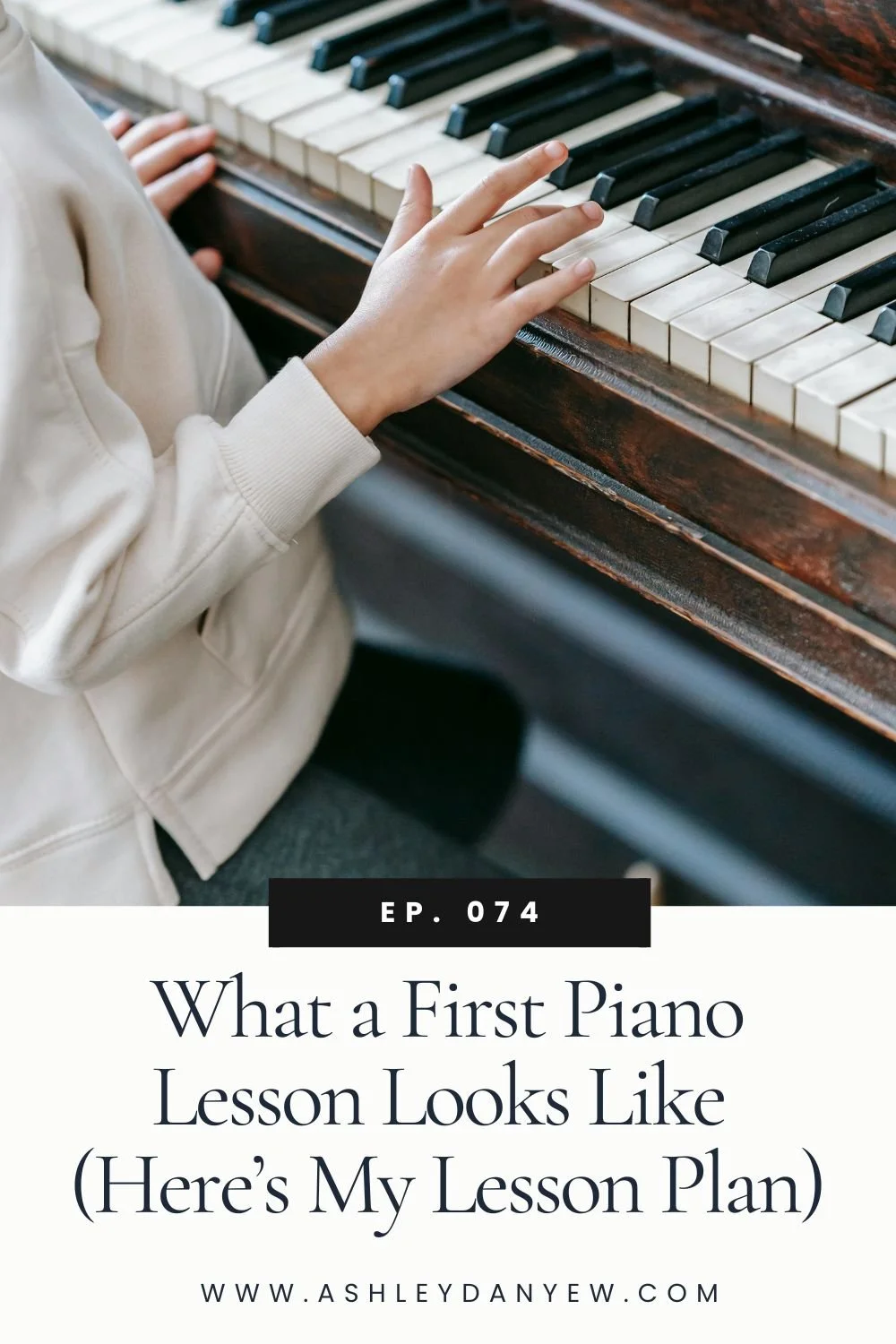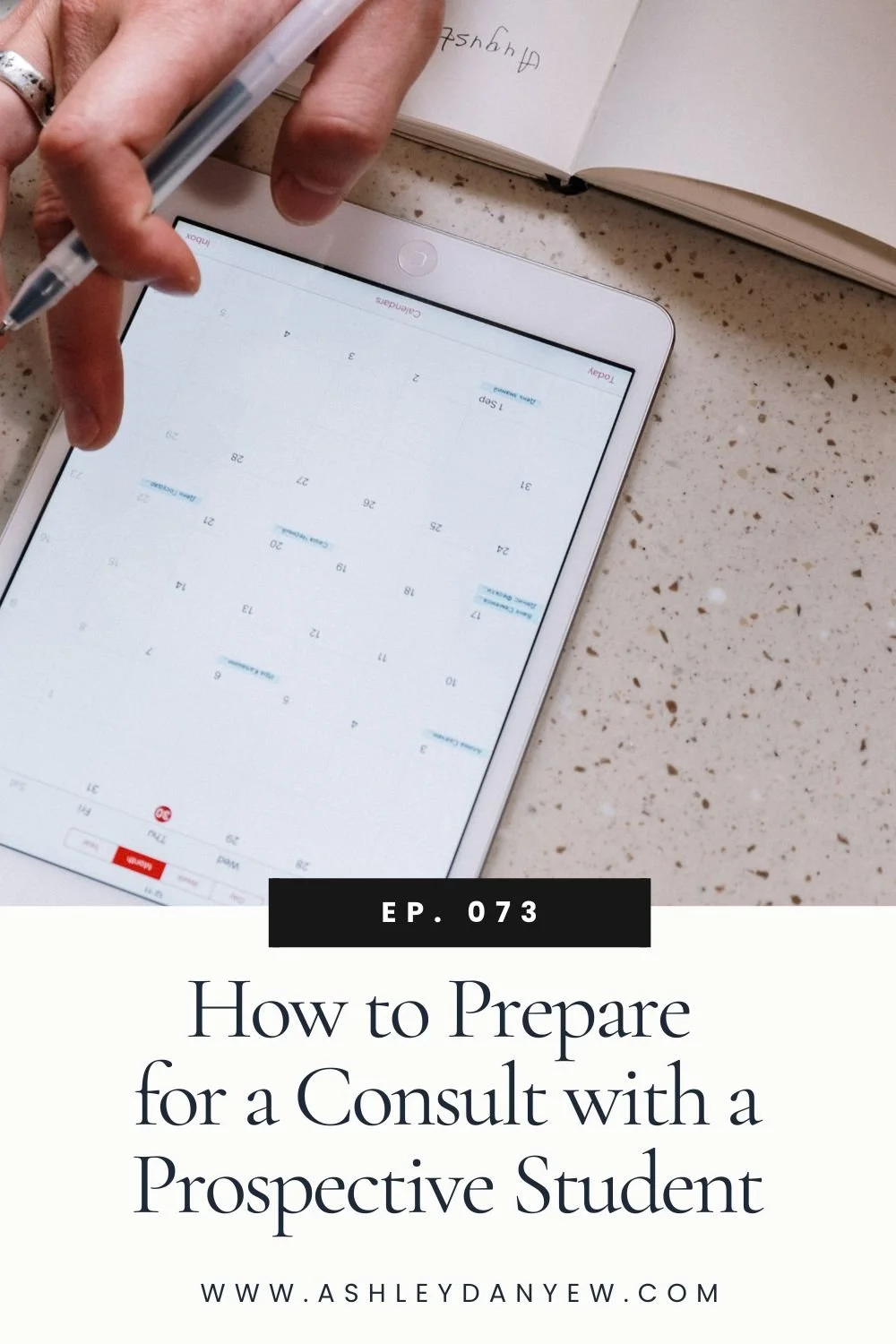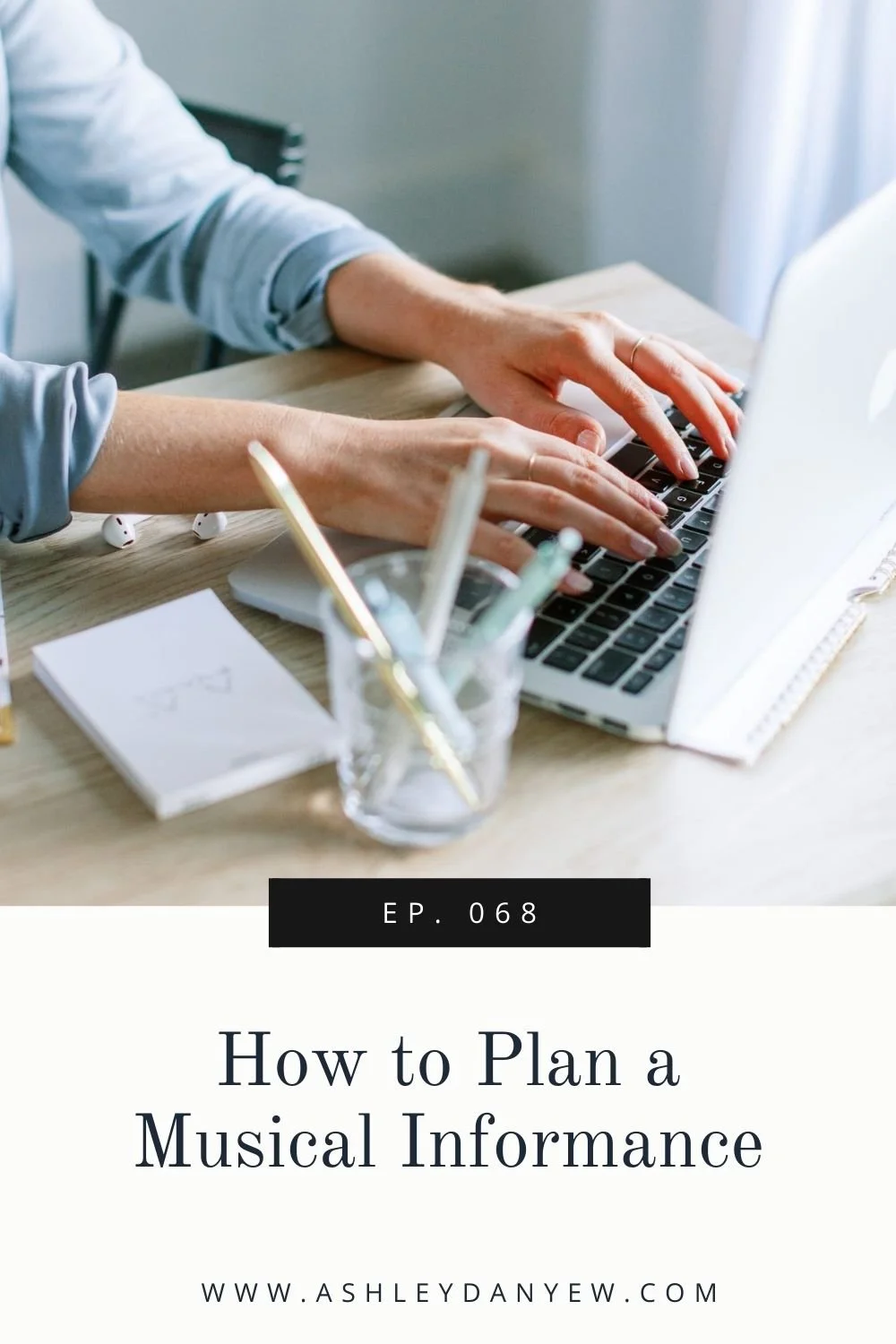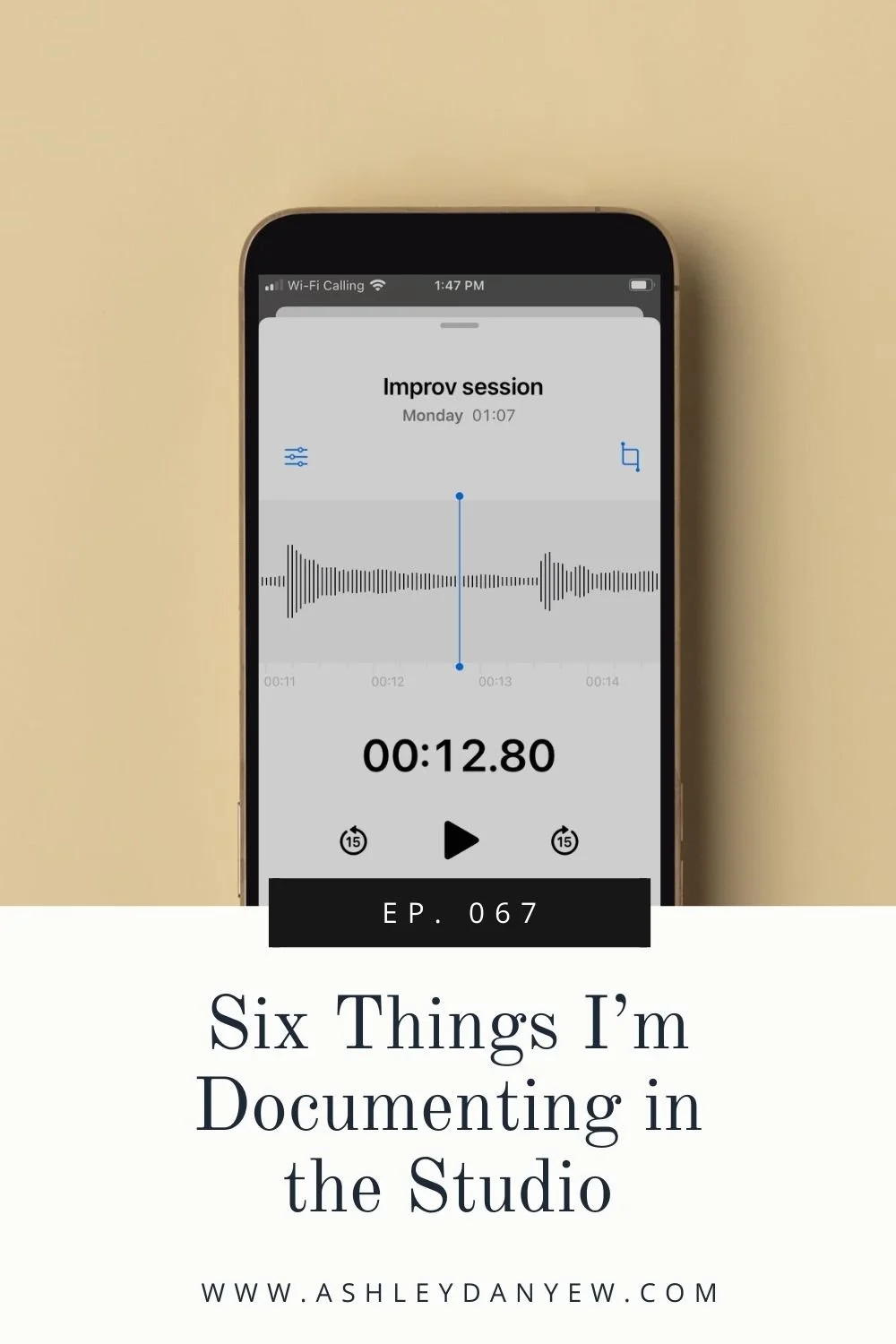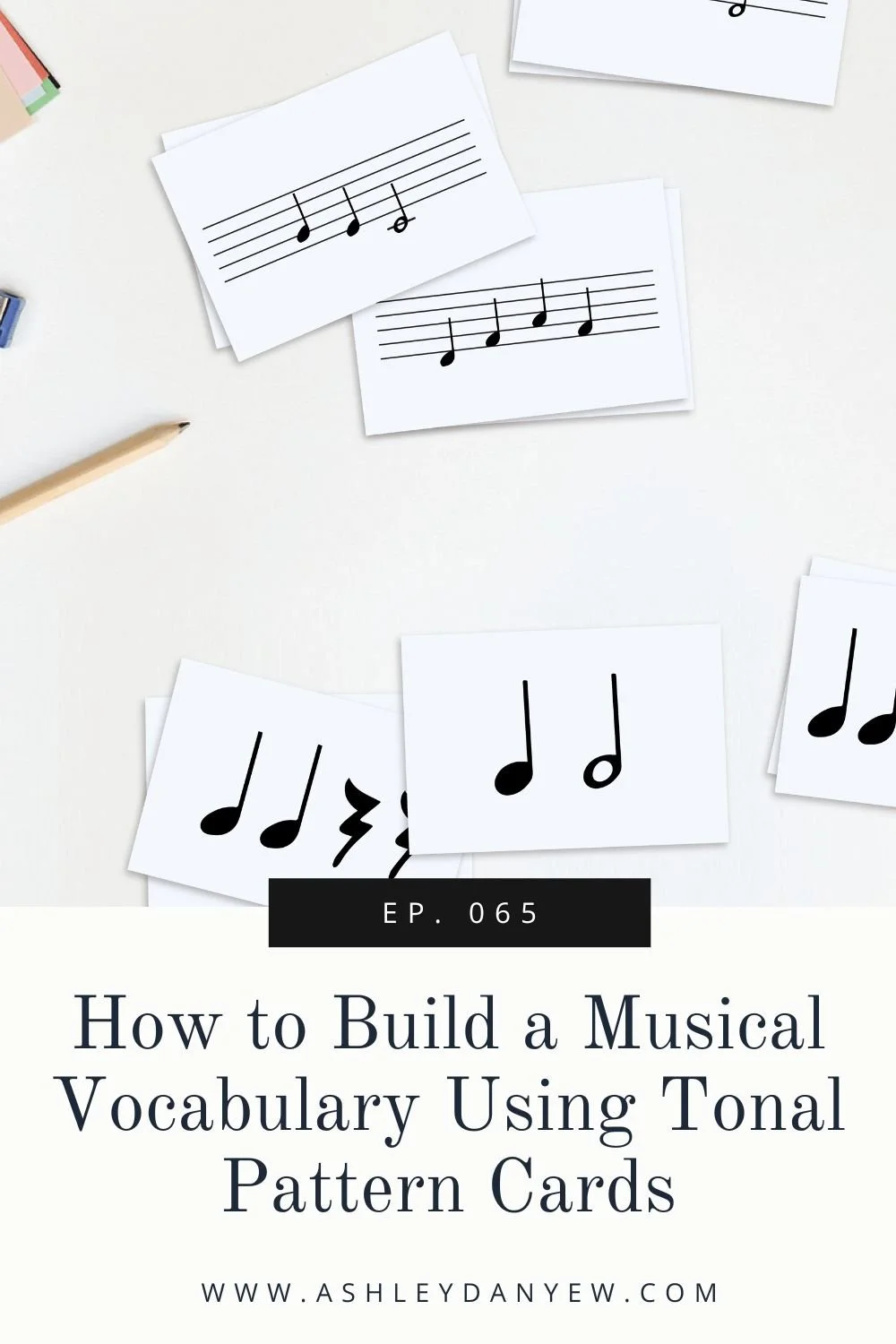Resources Mentioned
*Disclosure: I get commissions for purchases made through links in this post.
Welcome, December: A month of parties and pageants, decorations and delight, twine-wrapped packages and twinkling lights.
In the midst of all the end-of-year festivities, I like to steal a few quiet moments for reflection:
I make a list of all the books I read this year and what I want to read next year (look for the link to that in the show notes, if you're curious),
I make an end-of-year summary for my business and send a spring calendar to my studio families,
I write a year-in-review blog post, and
I reflect on what I've learned as a teacher.
As teachers, we spend so much of our time focusing on what our students are learning and discovering. Are they progressing? Are we challenging them enough? Too much? How have they grown in their musicianship this year? What should we focus on in the next few months?
Our students deserve this kind of reflection and planning to guide their learning and promote their continued skill development.
But what about us? Are we progressing? Are we challenged enough? Too much? How have we grown in our musicianship this year? What should we focus on in the next few months?
Taking time to reflect on our teaching practice is an important and necessary part of the teaching-and-learning equation. So today, I'm looking back on all the moments I documented on the podcast this year and sharing seven things I've learned as a music educator.
7 Things I Learned As a Music Educator This Year
No. 1 - Showing is sometimes better than telling.
This one comes from back in the Spring, Ep. 044 - What Do You See? The Power of Observation in Music Lessons. I wrote:
"Recently in my teaching, I've been looking for opportunities to show rather than tell. And I'm continually surprised by how quickly my students recognize what I'm trying to communicate and are able to imitate it effectively. Often, when they see something with their eyes, they're able to take in more information and apply it more quickly than if they have to take in my verbal instructions, translate that into something physical, and try it for themselves and often times they're unsure if they're doing it right."
Have you experienced this in your teaching this year? Lately, I've found this approach particularly effective for teaching dynamics and phrasing (especially if I say, "I'm going to play this two ways. What do you see that's different?") and beginning technique patterns, like the ones outlined in Piano Safari.
Since recording this episode, I would add "What do you hear?" to this, as well. Recently, I asked a student to close their eyes and listen, to tune out the distraction of the other senses. I also did a rhythm dictation activity with a 12th-grade student: She wrote a series of rhythm patterns for me to notate and I did the same for her.
In summary, I learned (or relearned) this year the power of observation and demonstration to convey information without words.
No. 2 - Interest-Based Activities lead to Learning.
I talked about this recently in Ep. 051 - The Pokémon Piano Lesson. This was a story about a 1st-grade student who is new to piano. I was struggling to find ways to capture his attention and keep him engaged throughout our 30-minute lessons, but one week, he happened to bring his Pokémon binder to show me and I realized that was all the inspiration we needed.
In the episode, I talked about some of the research behind guided play, which is what we did in that lesson. I shared:
"Guided play and interest-based learning activities can lead to greater competence, increased motivation, and language and communication skill development."
This has given me renewed motivation to get to know my students and their interests. For instance: "You had popsicles for a class birthday today? What's your favorite flavor?" And then we do a rhythm activity using "pineapple" and "orange" rhythms to start the lesson.
How do you use interest-based learning in your teaching practice?
No. 3 - You can Write an Entire Lesson Plan on a Post-It Note.
Over the summer, I shared an inside look at my lesson-planning process, Ep. 047. I talked about my Post-It note planning method for beginning and early-elementary students—creating a list of sequenced lesson activities to reference quickly when teaching. I wrote:
"I find I can get through 8-9 activities in most 30-minute lessons and having this list of activities sequenced in advance and written on something small like a Post-It means I can stick it on the piano and quickly glance at it as needed to keep the lesson flowing."
I'll mention again that I started using the Post-It app on my iPad, which has been particularly helpful for days when I have 2-3 beginning students back to back. I can make a folder for the day and add all the virtual Post-Its I need (I use a different color for each student) and then quickly swipe from one to the next at the beginning of each lesson.
This has made a huge difference in my preparation and pacing in lessons and really keeps us on track. It also helps me ensure that I have on-the-bench and off-the-bench activities, a rhythm game, technique exercise, and something creative (improv or composition) in every lesson.
No. 4 - Scavenger Hunts Help Students Uncover and Discover Musical Elements.
In Ep. 043 back in the Spring, I talked about rediscovering the joy of scavenger hunts. I remember that I was trying to think of a fun way to reinforce a musical concept with a student and I came up with a creative spin on a scavenger hunt. I wrote:
"We learn by doing, acting, observing, experimenting, and feeling. Moving around the space to actively uncover and discover musical elements is a much more tangible and active way to experience a new musical concept and this often makes the learning process more meaningful and memorable."
Do you use scavenger hunts or activities like this in your teaching?
No. 5 - Every Student Can Be a Composer.
Some of you may remember the composition project I did with my students back in February. We studied the 12-bar blues and I created a 4-week guided composition assignment to walk them through the process of creating their own blues piece. I talked about the process and three things I learned in Ep. 045 - The Blues Composition Project, plus, I shared a few examples of my students' compositions.
I wrote:
"I think a lot of our insecurity about composing with our students comes from our own unfamiliarity with the process. The truth is, creativity thrives with parameters, boundaries, limits. In music, there are lots of parameters we can set up at the outset of a creative project to help our students be successful."
I was also reminded through this project how much you can create with simple musical building blocks. I had several students right around the same level, composing with the same chord progression, in the same key, with some of the same accompaniment choices even, and I thought their pieces might end up being more similar to each other. But they were all so different!
No. 6 - Our Affirmation Needs to Connect a Student’s Effort to the Outcome They Achieved.
At the beginning of the year, I renewed my commitment to focus on the music in each lesson. I talked about this inspiration in Ep. 041—a quote from pianist and pedagogue Marvin Blickenstaff who said, "The student deserves our input, response, and affirmation." I recognized that I am often quick to provide my input and response, but not always as intentional with my affirmation or praise. With that comes research from psychologist Carol Dweck who explains that intentional praise is more than just a word of encouragement; our affirmation needs to connect a student's effort to the outcome that was achieved. This helps promote a growth mindset.
As I contemplated these two related ideas, I decided to make a renewed commitment in my teaching practice. I wrote:
"This month, I'm making a conscious effort to focus on the music. And that means being more specific in my encouragement to students and finding ways to tie it to the musical outcomes they're achieving."
No. 7 - We’re All a Mixture of Fixed and Growth Mindsets.
When I make my book list at the beginning of each year, I always try to include something that relates to music, teaching, or the creative process. One of those books was Carol Dweck's Mindset: The New Psychology of Success. I talked about this book and some of my biggest takeaways in Ep. 049 - What Every Music Teacher Should Know About Mindsets.
I wrote:
"It's important to think about mindset as a continuum as we help our students navigate various situations, as well. The more you learn about what fixed mindset looks like vs. what growth mindset looks like, the more you may recognize these responses and reactions in your students. Be careful, though, to not label your students as one or the other. Remember that we are all a mixture of both. Instead, look for ways to guide your student to more growth-mindset-oriented responses in the moment."
Summary
So that's my quick year-end summary of and reflection on seven things I've learned as a music educator. I hope this inspires you as you reflect on your music teaching this past year.
I’d love to hear from you:
What have you learned? What are you learning? I'd love to hear your thoughts and reflections.

